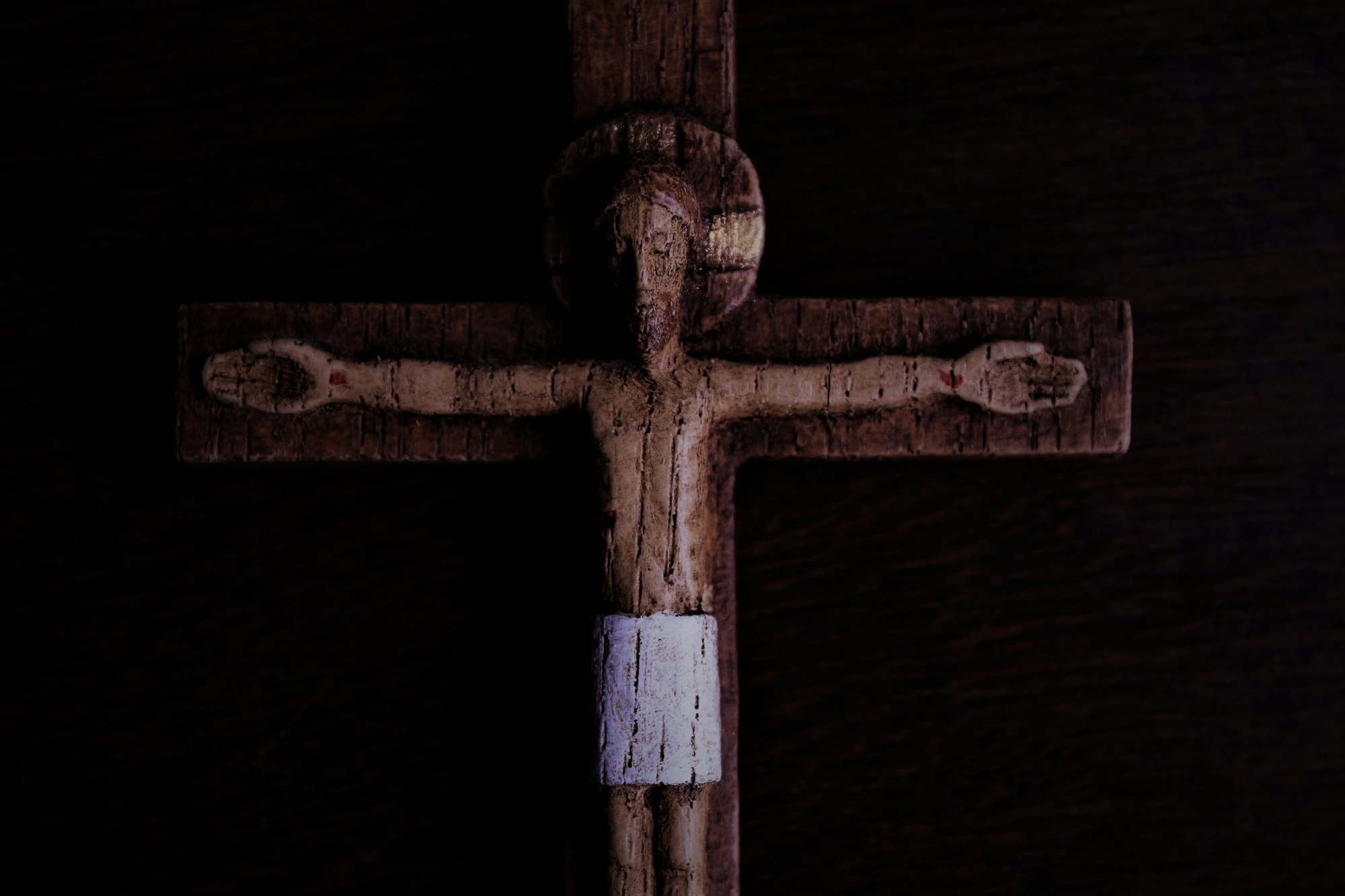Silent Saturday: Finding Meaning in the Great Silence

Walking Through Holy Week, Part Seven
Holy Saturday (sometimes also known as Black Saturday)—the day when Jesus' body lay in the tomb—represents one of the Christian story's most profound yet understated moments. In this article, I'm calling it Silent Saturday – a day of waiting and uncertainty that offers surprising wisdom for our own spiritual journeys, especially when we face seasons of silence and apparent divine absence.
The Day Between Death and Life
"Joseph bought a linen cloth, took Jesus down from the cross, wrapped him in the cloth, and laid him in a tomb that had been carved out of rock. He rolled a stone against the entrance to the tomb." (Mark 15:46)
"The women who had come with him from Galilee followed, and they saw the tomb and how his body was laid. Then they returned, and prepared spices and ointments. On the sabbath they rested according to the commandment." (Luke 23:55-56)
The Gospel accounts are strikingly sparse in their description of this day. After the drama of the crucifixion, on this day we find only silence. The body of Jesus lies wrapped in linen, sealed behind a stone. His followers, shattered by grief and fear, observe the Sabbath rest, though surely it was anything but restful for their troubled hearts.
What must that Saturday have felt like for them? Their friend and teacher was dead. Their hopes seemed crushed. Promises remained unfulfilled. They had no script for what would happen next because resurrection wasn't even in their imagination. All they knew was absence, confusion, and the painful gap between what they had believed and what they now experienced.
The Sacred Pause
Silent Saturday represents what theologians have called "the great silence"—a sacred pause in the redemption story. This day stands as a powerful metaphor for those inevitable times when:
- God seems absent or silent
- Promises appear unfulfilled
- Hope feels foolish
- Faith exists in the dark
- Questions remain unanswered
In a culture obsessed with immediate results and constant activity, Silent Saturday teaches us the spiritual wisdom of waiting. It reminds us that transformation often occurs underground, in darkness, when nothing seems to be happening. The seed must lie in the dark earth before it sprouts; the butterfly forms in the hidden chrysalis; and sometimes faith must endure its own silence before experiencing resurrection.
The "Already But Not Yet"
Perhaps no day in the Christian calendar better captures what theologians call the "already but not yet" nature of faith. We live between Christ's first coming and his return, between the inauguration of God's kingdom and its fulfillment. Like those first disciples on that first Saturday, we often find ourselves in spaces where:
- Healing has been promised but not yet realized
- Justice has been proclaimed but not yet established
- Victory has been assured but not yet manifested
Silent Saturday permits us to acknowledge this tension without denying the reality of suffering or abandoning hope of transformation. It validates experiences of disorientation, doubt, and grief as legitimate parts of the spiritual journey rather than failures of faith.
Finding God in the Tomb
The great paradox of Silent Saturday is that while it appears to be a day of divine absence, the mystery of faith tells us that Christ was at work. Even in the darkest moment of the story, redemption was still unfolding in ways no human eye could see. The Spirit of God was neither silent no inactive!
So it is with our own days of silence. What appears to be God's absence may actually be God's presence in a deeper, hidden form. What feels like divine silence may be God speaking in a language we're still learning to hear.
Silent Saturday reminds us that God's best work often happens in tombs—in places of apparent endings and failure. It forms in us the capacity to trust that even when we cannot trace God's hand, we can trust God's heart. This prepares us for resurrection, not as a denial of suffering, but as its ultimate transformation.
Living Holy Saturday Faith
How do we lean into the wisdom of silence in a world that often wants action? How do we stop on Silent Saturday when so many people want to skip straight from Good Friday to Easter Sunday?
- Honor grief's process - Rather than rushing past pain, give it the space and time it needs.
- Embrace the questions - Let uncertainty be a doorway to deeper faith rather than a threat to it.
- Practice active waiting - Like the women preparing spices, do what you can while simultaneously waiting.
- Look for hidden growth - Remember that what appears dormant may be quietly transforming.
- Hold space for others - Sit alongside those experiencing their own Holy Saturdays without trying to rush them to Easter.
A Prayer for Holy Saturday
Lord, give me patient hope in times of waiting and the faith to trust You in seasons of silence and apparent absence. When I cannot see evidence of Your work, help me remember that darkness often precedes resurrection. Teach me to wait actively yet peacefully, to honor grief without surrendering to despair, and to trust that even now—especially now—You are doing Your deepest work in the hidden places of my life. Amen.
What "Holy Saturday" experience have you faced in your own life, and what helped you endure the waiting? Share your reflections in the comments below.
Subscribe today









Member discussion